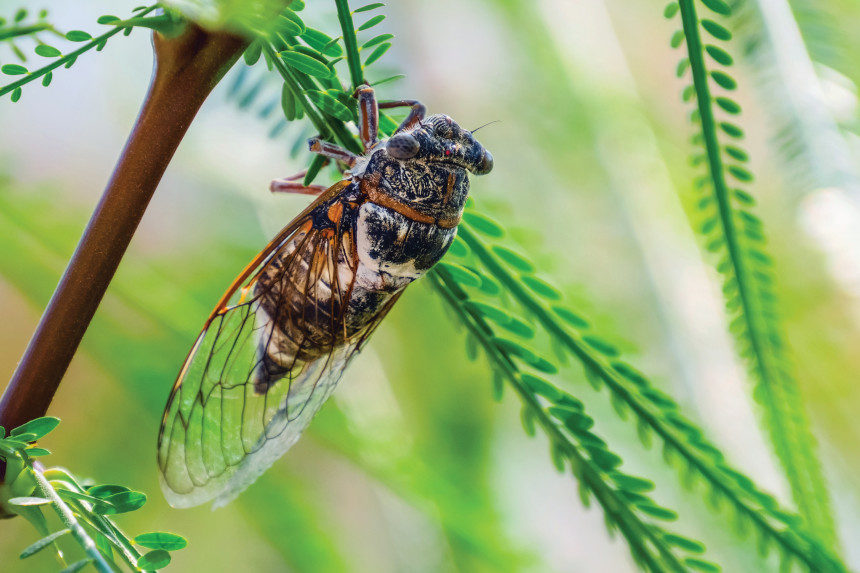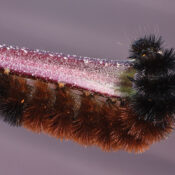Spring came early this year to Indiana and lasted less than a month before summer was upon us. The creek that tumbles out of our woods was edged with masses of tadpoles by early April that are now full-throated frogs. Brood X of the 17-year cicadas have emerged this summer, so between them and the bumper crop of frogs, our usually quiet farm has been a cantata of nature. While I generally don’t like noise, I do enjoy sound, especially the natural kind, so pass as many evenings as possible on the front porch as the frogs and cicadas sing first one song and then another.
I worry about the frogs and what they’re eating. Or more accurately, what they’re not eating. There has been a noticeable decline in insects. An evening on the front porch used to be an insect’s buffet, with me as the main course, but now there is only the occasional listless fly and the intermittent mosquito, which don’t bite me with nearly the enthusiasm they once did. I never thought I would miss insects, but if you live long enough, anything is possible. The British biologist David Goulson says that without insects we won’t have pollination, which means we won’t have the crops that depend upon pollination, which means we’ll eventually not have the humans who require the crops to survive. No insects, no us.
My wife and granddaughter are doing their utmost to revive the pollinator population hereabouts by planting milkweed, hoping to increase the number of monarch butterflies. For several summers they have plucked the monarch caterpillars from our milkweed and placed them in a netted enclosure on our dining room table, lifting the veil each day to add fresh milkweed leaves. The caterpillars become chrysalises, and the chrysalises are transformed, often as we watch, into monarchs, which are then named by our granddaughter, who then releases them into the pasture below our woods whence flows our creek. When I first learned to drive, I would routinely pluck the carcasses of dead monarchs from the grille of my car, never dreaming the day might come when I would surrender my dining table to safeguard their survival. But then if you live long enough, anything is possible.
There is no reasoning with people who prefer a manicured lawn over a healthy one.
In support of the pollinators, we don’t kill our dandelions or clover either, which are the first foods of the season for the humble bee. No clover, no dandelions, no bees, and then no sweet corn, and there goes the best reason to live. The anticipation of sweet corn is the only thing that keeps me going through the dreary months of February and March. Otherwise, I would jump off the nearest tall building, our barn, which wouldn’t kill me, but would leave me with two broken legs, only compounding my misery.
We stay at our farm mostly in the warm weather. The rest of the year we live in town but don’t kill the dandelions there either, to the disgust of certain townsfolk, who mistakenly view this beautiful and useful plant as a weed. There is no reasoning with people who prefer a manicured and monocultural lawn over a healthy one, so I ignore their comments and go on my way, one more prophet not welcomed in his hometown.
Nevertheless, doing what I can for the insect world is so rewarding, I’d like to think that if frogs, cicadas, mosquitoes, butterflies, and bees had houses, my picture would be hanging on their walls, like the picture of Jesus hung in my grandma’s kitchen. This might be expecting a bit too much, but then again, if you live long enough, anything is possible.
Philip Gulley is a Quaker pastor and author of 22 books, including the Harmony and Hope series, featuring Sam Gardner.
This article is featured in the July/August 2021 issue of The Saturday Evening Post. Subscribe to the magazine for more art, inspiring stories, fiction, humor, and features from our archives.
Featured image: Shutterstock
Become a Saturday Evening Post member and enjoy unlimited access. Subscribe now




Comments
Wonderful! I know the little one in the picture very well, and we hear them all the time lately!